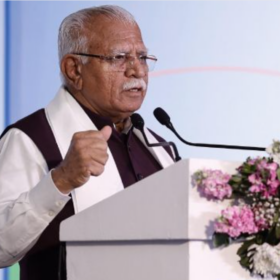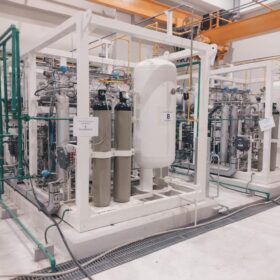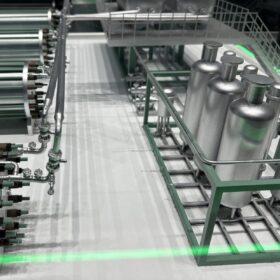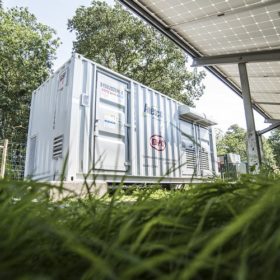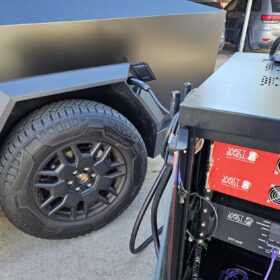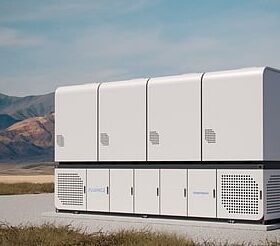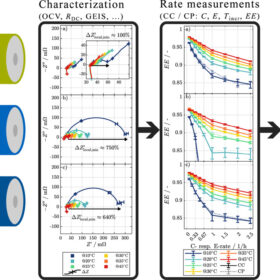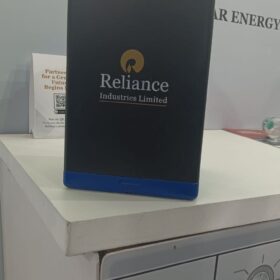“Electrical, electronics manufacturing will be key in scaling clean energy”: Power minister
Manohar Lal Khattar, union minister for power, highlighted the electrical and electronics manufacturing industry will be key in scaling clean energy, advancing grid modernization, and strengthening transmission networks as India aims to achieve 800 GW of power generation capacity by 2030, with 50% from renewables.
Airox Nigen commissions green hydrogen project for TPSC in Bangladesh
Airox Nigen has set up a green hydrogen plant designed to produce 72 Nm3/hour green hydrogen from 360 kW alkaline electrolyser system.
Israel awards 1.5 GW energy storage in tender, pricing from $49.41 to $74.20 per kWh
Israel’s storage tender sets prices between $0.0056 and $0.0085 per kW, with kWh figures therefore at $49.41 to $74.20 per kWh.
The Hydrogen Stream: NTPC Green Energy, BLP sign green hydrogen MoU
NTPC Green Energy Ltd (NGEL) and Bharat Light and Power (BLP) signed a Memorandum of Understanding (MoU) to jointly explore the off-take of green hydrogen and its derivatives from NGEL and its affiliates to third parties.
Power ministry mandates energy storage co-location with solar projects
India’s Ministry of Power has mandated that all renewable energy implementing agencies (REIAs) and State utilities must incorporate a minimum of two-hour co-located energy storage systems (ESS), equivalent to 10% of the installed solar project capacity, in future solar tenders.
Servotech Renewable signs agreement with France-based Watt & Well to make EV charger components in India
The collaboration will initially focus on the development of a 30kW power module for use in the Indian EV charging market.
Fluence launches highly-modular 7.5 MWh AC-based BESS platform
The system features an innovative split design breaking away from the industry standard 20-foot container. It is configurable for storage durations of two to eight hours.
Sodium-ion vs. lithium-iron-phosphate batteries
Researchers in Germany have compared the electrical behaviour of sodium-ion batteries with that of lithium-iron-phosphate batteries under varying temperatures and state-of-charges. Their work shows how state-of-charge during cycling significantly affects the efficiency of sodium-ion devices.
Reliance Industries awarded 10 GWh advanced chemistry battery capacity under PLI Scheme
India’s Ministry of Heavy Industries has signed a programme agreement with Reliance New Energy Battery Ltd for 10 GWh capacity under the production-linked incentives (PLI) Scheme for advanced chemistry cells.
Reliance Infrastructure to enter solar, battery manufacturing
Reliance Infrastructure Ltd (RInfra) has announced its plans to set up integrated solar equipment and battery manufacturing units. It has appointed Ivan Saha as chief executive officer (CEO) for the renewable manufacturing business, and Mushtaque Hussain as CEO for battery manufacturing.
